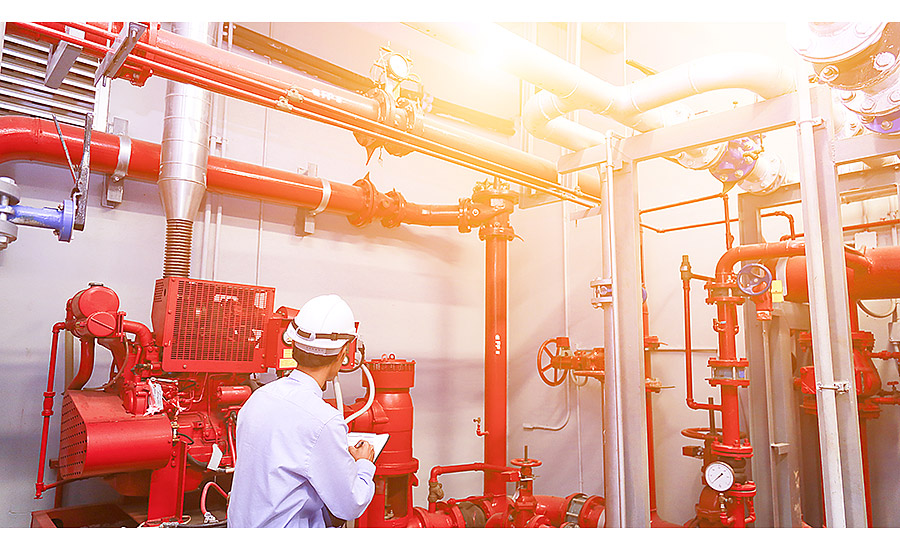How to avoid downtime?
Sprinkler systems are the foundation of safety in industrial and public facilities, where the protection of life and property is a priority. In facilities operating around the clock, such as hospitals, logistics centers or manufacturing plants, ensuring the smooth operation of these installations requires precise service management. In the following article, we will present methods of organizing service, technologies supporting maintenance and practices ensuring the reliability of sprinkler systems.
How to organize service so as not to disrupt the operation of the facility?
Planning maintenance in facilities operating 24/7 requires taking into account the specific needs of the infrastructure and operations. A key aspect is the flexibility of the work schedule, which should take into account the periods of lowest load on the facility. Maintenance in facilities operating 24/7 can be carried out in stages, providing gradual control of the installation and elimination of potential problems before they become a serious threat.
Modern diagnostic systems allow for precise assessment of the technical condition of individual components. Implementation of such solutions enables quick identification of faults and reduces the time needed for their repair. More importantly, regular maintenance of 24/7 systems increases their durability and efficiency. For example, the use of advanced inspection tools allows for detailed examination of hard-to-reach installation elements, such as pipes or valves. Cooperation with professionals is an important aspect. Such practice will ensure that installation of sprinkler systems and their service in the field of servicing will meet the highest standards, and the facility will remain completely safe.

Best Service Practices for 24/7 Facilities
The effectiveness and reliability of fire protection systems in facilities operating 24 hours a day depend on the use of proven maintenance practices. For example, the introduction of remote monitoring technology allows for continuous monitoring of system operating parameters, which significantly shortens the response time in the event of detection of irregularities. 24/7 sprinkler systems are therefore operated in a more predictable and precise manner.
Another important element is proper documentation of service work. Each inspection should be described in detail. This makes it easier to track maintenance history and allows for faster diagnosis of potential problems in the future. Furthermore, training of facility staff in basic fire protection system operation is invaluable in emergency situations. Equipping employees with the knowledge and skills allows for quick action before the service team arrives.
Ensuring the continuity of fire protection installations requires a combination of expert knowledge, modern technologies and regular inspections. Effective fire protection service is based on precise planning, the use of high-quality components and the use of innovative solutions, such as remote monitoring or inspection robots.
